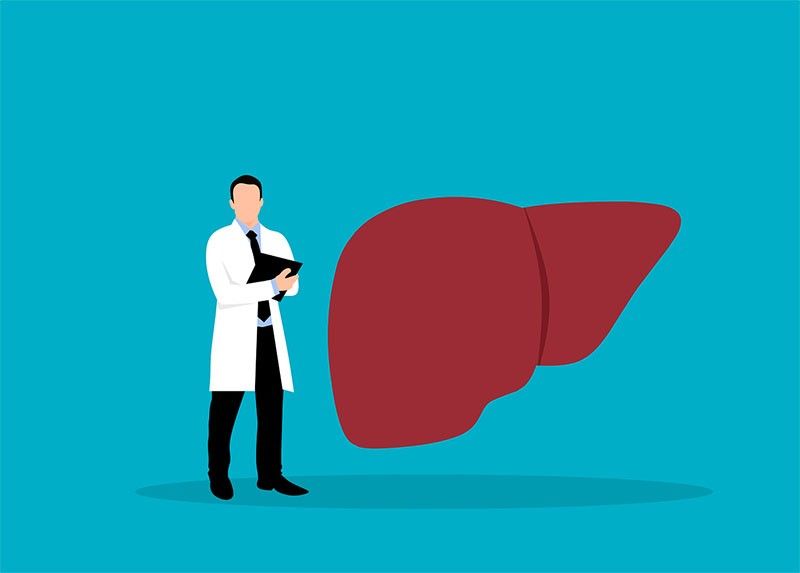Empowering stakeholders for better liver care

In the just-concluded month of January, the country marked the annual observance of liver cancer and viral hepatitis prevention and awareness. Approximately 300 million people worldwide are living with viral hepatitis, mainly the hepatitis B virus (HBV). This puts them at a higher risk of developing a serious condition—liver cancer.
In the Philippines, Hepatitis B remains highly endemic with around one out of 10 adult Filipinos affected, according to the Department of Health. Consequently, liver cancer is among the cancers with the highest morbidity and mortality in the Philippines, based on the 2020 Adult Cancer Report.
That is why various stakeholders believe that it is time to move from mere prevention awareness to action.
Stratbase Institute, in partnership with UHC Watch and Yellow Warriors Society of the Philippines, wanted to occasion conversation on this.
On January 19, they conducted a round table discussion (RTD) entitled “From Awareness to Action: Empowering Stakeholders for Better Liver Care.” The said event gathered experts and stakeholders from the public, private, and civil society sectors who shared their perspectives and recommendations on how to progressively achieve the goals of the current Global Health Sector Strategy for Viral Hepatitis and the UHC Act.
The beauty and the benefit of multi-stakeholder RTDs offered by the Stratbase Institute is the confluence of data from different sectors. Take, for example, the statement of Dr. Kiyohiko Izumi of the World Health Organization that the western pacific region has done a good job in terms of vaccination as the HBV 3+ dose coverage reached its WHO target.
However, in terms of HBV diagnosis and treatment, the region is way below the WHO target, reaching only 23% and 15% of its goal, respectively.
This regional data is supported by official local data provided during the forum by Vincent Sumergido, supervising health program officer of the DOH Disease Prevention and Control Bureau.
Sumergido shared that almost 90% of people living with viral hepatitis are unaware that they have it. Which calls into question the reason for the low rate of HBV diagnosis.
A clue on the reason for the low diagnosis rate was then provided by Dr. Jen Agcaoili-Conde of the Hepatology Society of the Philippines. In her speech she revealed that the diagnostic and annual health care cost for hepatitis in the Philippines is very high and, thus, there is a need to collaborate and support the development of viral hepatitis and cancer benefit packages.
In response, Anna Liza Pastrana-de Leon, senior social insurance specialist of the Philippine Health Insurance Corp.’s (PhilHealth) Primary Care Program Management Team, relayed that screening and diagnostic services for testing are included in PhilHealth's outpatient comprehensive benefit packages. However, there is still no specific benefit package for screening viral hepatitis.
Key decision makers in government also participate in the Stratbase RTDs. Another synergistic moment relates to the response of no less than Sen. Nancy Binay to anecdotes of prejudice suffered by some Yellow Warriors Society officers.
The officers related that they were discriminated against while applying for work and after the annual physical examination. Binay’s apt statement in her message was that discrimination has no place in (Philippine) society. She further stated that everyone deserves equal opportunities and respect, regardless of their health conditions.
Most importantly, Health Secretary Ted Herbosa likewise expressed his support and relayed the DOH’s strategies for liver care.
These include improving Hepatitis B vaccination, managing needle stick injuries among health workers, strengthening substance abuse and use control, expanding regular screening and early detection efforts, as well as encouraging healthy lifestyle choices.
“Our [DOH] endeavor covers the end-to-end spectrum of care with strong emphasis on health promotion and disease prevention,” Herbosa said.
“As we navigate the complexities of liver cancer and viral hepatitis, let our commitment to collaboration and shared responsibility be our guiding principle. Through the empowerment of stakeholders, we have the opportunity to transform awareness into impactful action making strides towards a future where liver diseases are not just understood but actively managed and ultimately prevented,” he added.
Other invited panelists from the Department of Labor and Employment, Dr. Darryl Lucian S. Bautista of the Occupational Safety and Health Center and Dr. Marco Antonio Valeros of the Bureau of Working Conditions, shared and discussed updates on the work conditions of patients living with viral hepatitis through the adoption of cancer prevention and control in private establishments and how the workers can be protected from pre- and post-employment discrimination.
As for the next steps, the Stratbase Institute, together with its partner organizations, will initiate more engagements that will bolster empowering engagements among different stakeholders towards further reducing the incidence of viral hepatitis, as an integral component of Universal Health Care.
Alvin Manalansan is the health and nutrition fellow of think tank Stratbase Institute and co-convenor of the UHCWatch.
- Latest
























